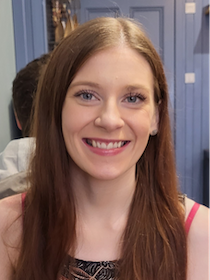Strathclyde Chancellor's Fellow, Mathematics & Statistics
I began my journey at Strathclyde as a student, graduating with an undergraduate degree in mathematics in 2016 and a PhD in mathematical analysis in 2019. Following this, I spent four years working at the Institute of Genetics and Cancer (University of Edinburgh) as a Cross-Disciplinary Postdoctoral Fellow where I moved into the field of biomedicine and conducted interdisciplinary biomedical research using mathematical modelling and bioinformatics. I then returned to Strathclyde as a Chancellor’s Fellow and Lecturer in the Department of Mathematics and Statistics in October 2023.
My research is centred on understanding biological systems using mathematical models and data analysis, with a particular focus on genomic systems. I combine the bioinformatic analysis of large-scale DNA sequencing data with the development and analysis of mathematical models describing DNA systems. The main aim of my research is to gain a better understanding of the processes underlying normal cellular function and how these processes can go wrong in disease.
I am really enjoying my time as a Chancellor’s Fellow and feel very supported by my Department and University. My department are very encouraging and have provided me with a mentor. I meet my mentor regularly and they are always happy to discuss my career aspirations and provide advice on activities that will help me to develop the wide range of skills required for a successful academic career.
The University has supported me to grow my research group. In particular, within months of my starting date, I secured an EPSRC PhD studentship via the University’s John Anderson Research Studentship Scheme. The University has also provided me with numerous relevant training opportunities, such as a Leading Research Programme and the Strathclyde Supervisor Development Programme. These courses provide the tools required to effectively manage a research group and research projects, including the planning and delivery of projects, managing people and leading research. I have found these training opportunities to be extremely beneficial in allowing me to develop skills required to lead my own research group. The University has also provided me with a reduced teaching load and a starter fund, allowing me to concentrate on developing an independent research programme, attend and present at conferences and prepare grant applications.
I have also had the opportunity to develop my teaching skills. In particular, I have co-designed a new “Mathematics in Society” module for our first-year undergraduate curriculum. I have really enjoyed the challenges involved in designing a module from scratch and am finding teaching the module very rewarding. I will also be undertaking the University’s PG Cert in Teaching and Learning, which offers a pathway to professional recognition as a Fellow of the Higher Education Academy. In addition, my department have supported my external teaching activities at the African Institute for Mathematical Sciences in South Africa, allowing me to widen my professional network and further develop my teaching portfolio.
